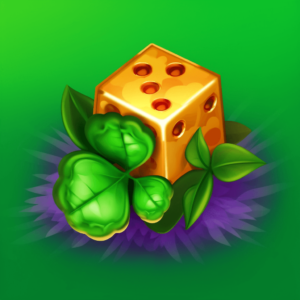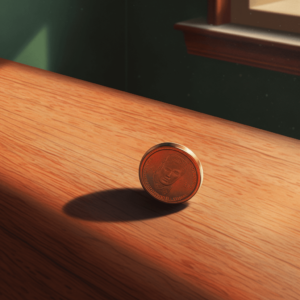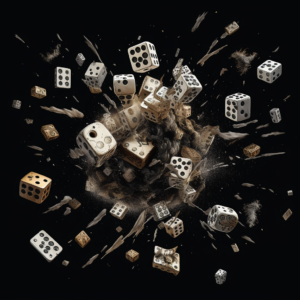When it comes to tabletop and board games, dice are the quintessential tools of chance. They introduce an element of randomness that adds excitement and unpredictability to gameplay. Whether you’re rolling a standard six-sided die in a classic board game or delving into the world of polyhedral dice in a role-playing game like Dungeons & Dragons, understanding the math behind dice probabilities can give you a strategic edge. In this article, we’ll dive into the fascinating world of dice probabilities and how they impact the games we love.
Dice have been used in games for centuries, and their outcomes have always been governed by probability. Whether you’re trying to roll a specific number to win a game of Monopoly or hoping for a critical hit in a role-playing adventure, understanding the odds can be a game-changer.
Understanding Dice Basics
Before we delve into probabilities, let’s review some basics. Dice are typically polyhedral, with each face displaying a different number. The most common is the six-sided die, but tabletop games often use dice with four, eight, ten, twelve, or even twenty sides.
Probability and Dice
Probability is the likelihood of a specific outcome occurring. When you roll a die, the probability of any given result depends on the number of faces and the distribution of numbers. The concept of probability becomes especially significant when you’re strategizing in a game.
The Standard Six-Sided Die
The standard six-sided die is used in countless board games. Each face has a number from 1 to 6, and each outcome has an equal chance of occurring. This means that the probability of rolling any particular number is 1/6 or approximately 16.67%.
Polyhedral Dice and Their Probabilities
In role-playing games like D&D, various polyhedral dice are used. For example, the 20-sided die is often used for determining the success or failure of actions. Understanding the probabilities associated with these dice is crucial for players and game masters.
Critical Rolls in Role-Playing Games
In RPGs, rolling a critical success or failure can drastically impact the storyline. Knowing the odds of achieving these outcomes can help players make strategic decisions and add depth to the narrative.
Dice Probabilities in Board Games
In board games like Risk or Settlers of Catan, dice rolls can determine the outcome of battles or resource production. By calculating the probabilities of different outcomes, players can make informed choices and increase their chances of success.
Strategic Decision-Making
Understanding dice probabilities isn’t about guaranteeing victory but making better decisions. It allows players to weigh risks and rewards, fostering a more engaging and competitive gaming experience.
Randomness vs. Skill
The balance between randomness and skill is at the heart of many games. Dice introduce randomness, but skillful players can use probability knowledge to mitigate risks and capitalize on opportunities.
Dice Probability Tools
In the digital age, various online tools and apps can calculate dice probabilities for you. These tools can be invaluable for gamers looking to optimize their strategies.
Below is a table displaying the probabilities associated with rolling specific numbers using a pair of dice. If you wish to calculate the probabilities of rolling a combination of numbers (such as 4 and 7, or 5 and 6), simply add the corresponding probabilities from the table. For instance, if you intend to determine the probability of rolling either a 4 or a 7, you can calculate it as follows: Adding 3/36 (probability of rolling a 4) to 6/36 (probability of rolling a 7) results in a total probability of 9/36.
Probability of rolling a certain number or less for two 6-sided dice.
Conclusion
Dice probabilities play a significant role in tabletop and board games, adding depth and excitement to gameplay. By understanding the math behind these probabilities, players can make more informed decisions and embrace the element of chance that makes gaming so captivating.
FAQs
- Is there a way to increase my chances of rolling a specific number on a standard six-sided die? No, each outcome is equally likely, so there’s no way to influence the result.
- Are dice probabilities the same in all games? No, probabilities vary depending on the number of sides on the dice and the rules of the game.
- Can probability calculations guarantee a win in a game? No, probability calculations can help you make better decisions, but games also involve strategy, tactics, and luck.
- Are there any games where dice probabilities don’t matter? While probabilities are essential in many games, some purely luck-based games don’t require strategic thinking.
- Where can I find dice probability calculators online? There are several websites and apps that offer dice probability calculators; a quick online search will lead you to them.
Understanding the math behind dice probabilities can enhance your gaming experience, so take some time to explore this fascinating aspect of tabletop and board games. Happy gaming!




